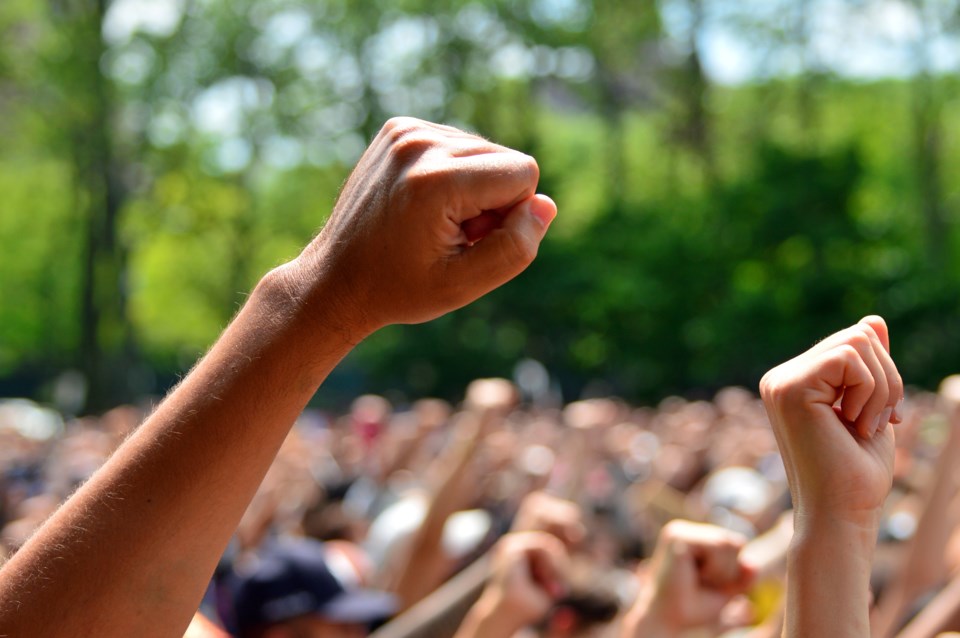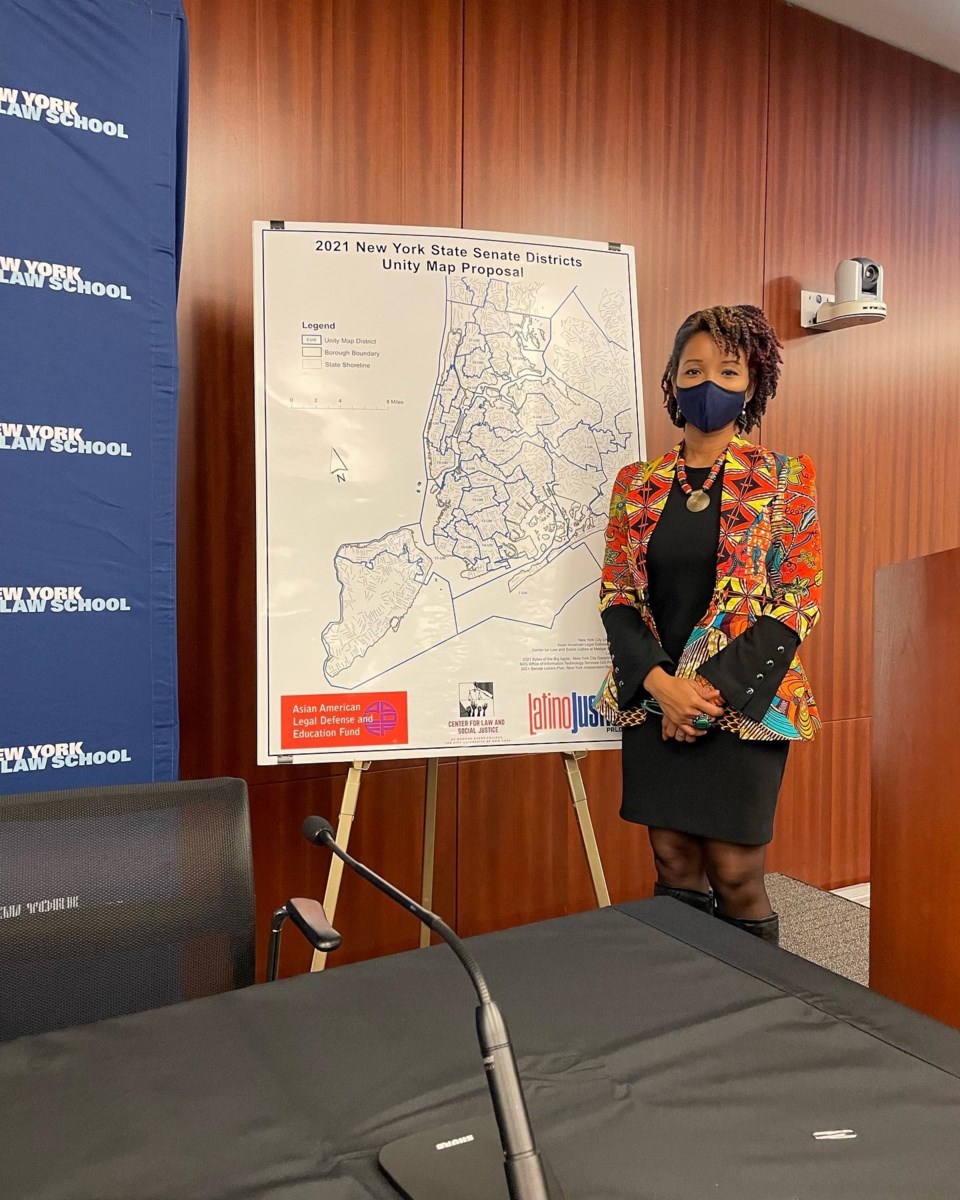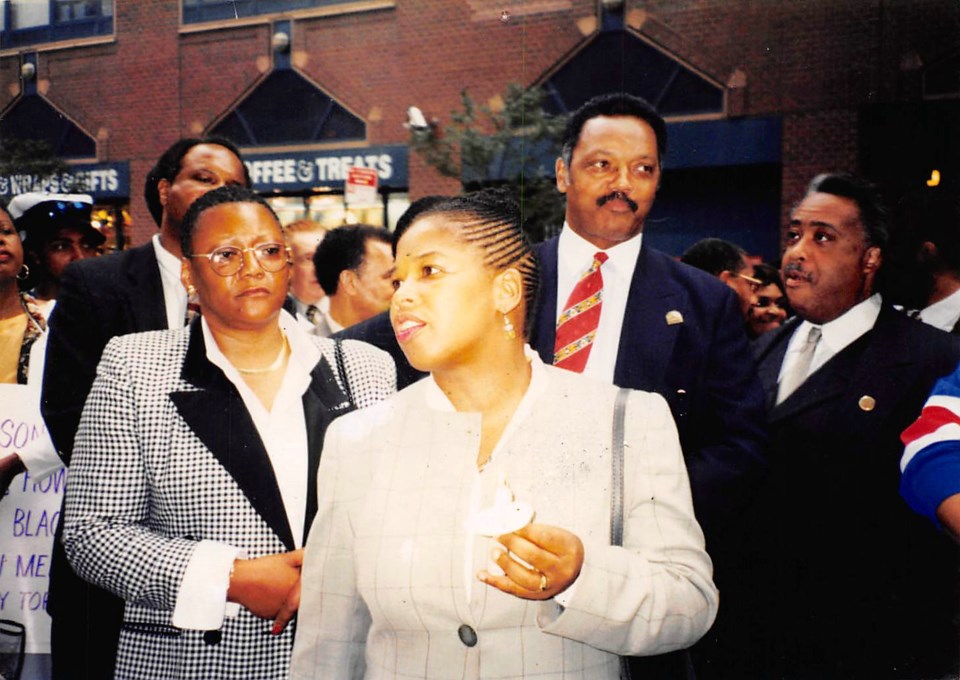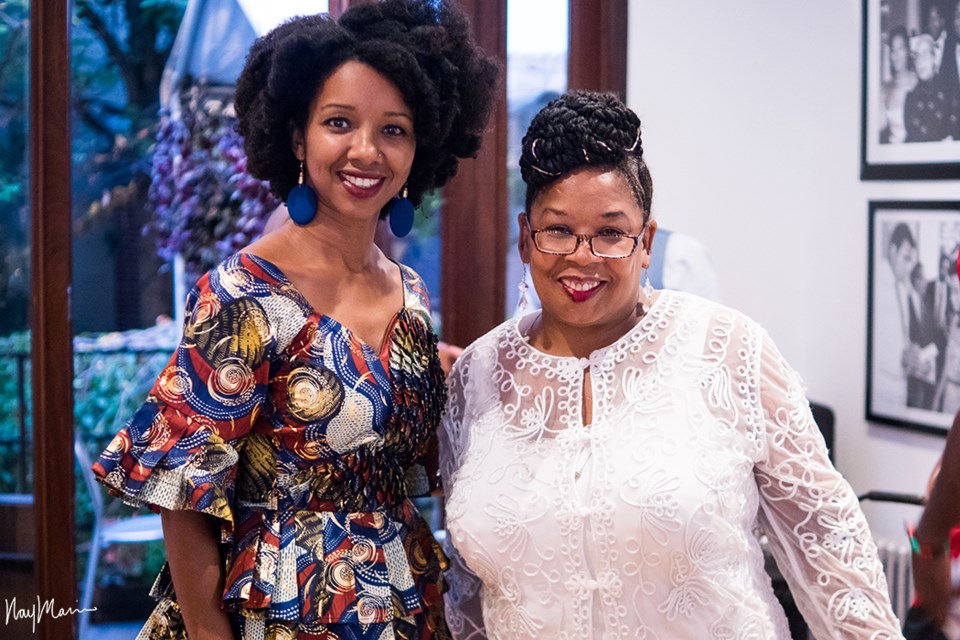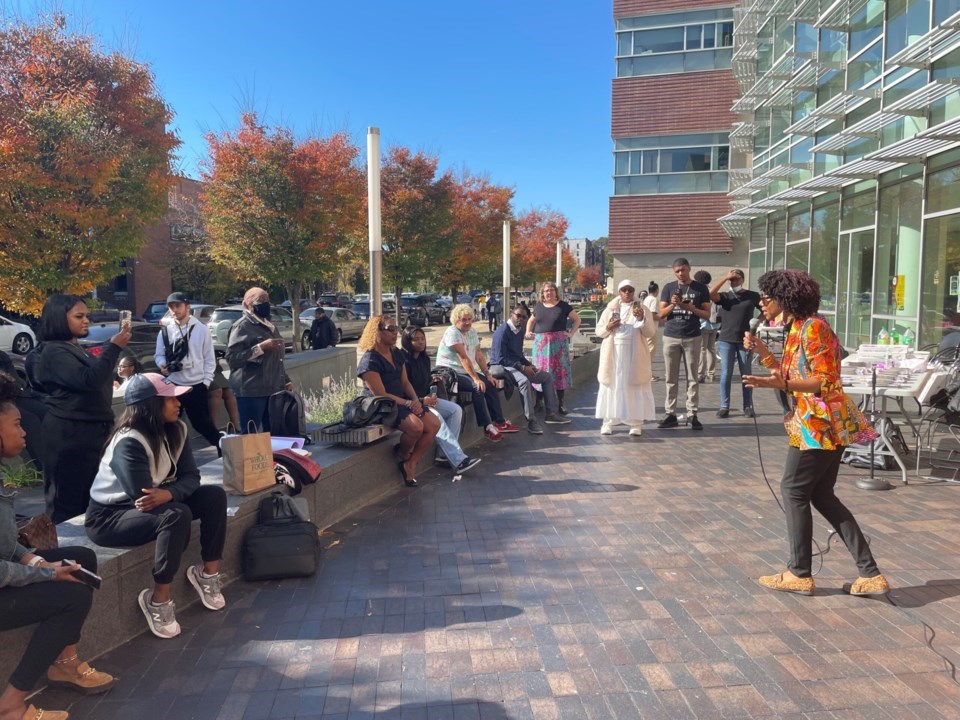Surviving New York City isn't easy.
Surviving it as a Black person? That's another layer of struggle that only the 1.9 million residents of African descent could truly understand.
Since 1986, one institution nestled in the heart of Central Brooklyn has been at the forefront of helping everyday New Yorkers of African descent fight these battles: The Center for Law and Social Justice at Medgar Evers College.
Dedicated to Black liberation through legal research and representation, civic education and community organization, CLSJ is probably the longest-standing, legal organization fighting racism in New York that you’ve never heard of.
But you haven't heard about it because of lack of impact. The organization has been fighting behind the scenes for the rights and representation of Black New Yorkers for close to 40 years:
The Center for Law and Social Justice was at the forefront of the research, litigation and criminal justice reform that addressed and helped change the laws around mass incarceration while promoting fair and just sentencing practices for Black residents in New York.
CLSJ, along with LatinoJustice, the Puerto Rican Legal Defense and Education Fund and the Asian American Legal Defense and Education Fund (AALDEF), did the research necessary to track the Black and Brown populations of New York City, leading to the creation of the country's first "Unity Map," offering a proposed redistricting plan for New York City that removed any partisan political calculation.
And CLSJ has actively worked to protect and expand voting rights, particularly for marginalized communities. If you remember the campaigns urging Black New Yorkers to "check Blackity Black Black" on the 2020 Census if they hope to get more resources ... Well, that was the behind-the-scenes work of CLSJ.
The organization's footprint in the community is significant, despite its unfamiliar face to most.
“We’re tiny but mighty,” said CLSJ Executive Director Lurie Daniel-Favors, Esq. However, said Daniel-Favors, the Center is done playing small. Given the current political climate, more of the Center’s work will be needed in the coming months, and the only way it to ultimately grow its reach in the community, she said, is by making sure that New Yorkers understand the urgency in their work and the ways they can also get involved.
And, she added, the urgency isn’t in a lack of passionate voices; it’s in getting more people to understand the legislative process and how to effectively organize.
“[Residents] need to know about what's happening in redistricting. They need to know about these threats to affirmative action and voting rights that is coming down the pike,” she said. “And even though it's not just germane to black people, what's happening with reproductive justice in this country. Because even though they're framed as reproductive justice cases, they are actually racial justice cases in many ways.”
“When I think just in terms of [American] history, from 1619 to 1964– that's 340-some-odd years where black people were intentionally, proactively and explicitly excluded from meaningful participation in the body politic,” Daniel-Favors said, “which means not just that we were excluded from the right to vote, we were excluded from going to city council meetings; we were excluded from being able to participate in testimony about how different policies would impact us; we were intentionally excluded from all of the decision-making apparatus that drive this country."
Understanding and navigating America’s governing structure is at the heart of why The Center for Law and Social Justice was created-- in response to the escalation of police killings in Black New York City communities during the 1980s. At the time, hundreds of Blacks and Latino New Yorkers fell victim to police harassment, beatings and unjustified incarcerations.
The impunity of the police outraged the community. So a group of local activists attorneys, including Michael Warren, Alton Maddox, C. Vernon Mason and Esmeralda Simmons, Esq; along with the Revs. Herbert Daughtry and Timothy Mitchell and Father Lawrence Lucas; and community activists like Dave Walker and Jitu Weusi, got together and agreed to develop an institution committed to the lawful resistance of police brutality. Simmons would be CLSJ’s founding executive director.
Assemblyman Roger Green, along with his then chief of staff, Adeyemi Bandele, provided the initial funds from the New York state budget which made the Center for Law and Social Justice a reality in 1986 where it has been run out of Medgar Evers College ever since.
For more than three decades, CLSJ– under the direction of Esmeralda Simmons– has been the headquarters for passionate, visionary attorneys tirelessly in pursuit of equality for Black and disenfranchised New Yorkers. Simmons said that the decision to make CLSJ more than a social justice movement but an actual research and law center was very intentional:
“I was a supporter of The East and the head of The East, Jitu Weusi, and one of the things that Jitu always said, is that the way Black people can advance is by creating institutions,” she said. “Institutions survive people. Institutions survive personalities; and institutions can withstand the foibles of human beings.”
For the past 37 years, the organization has made the greatest headway in the areas of voting rights, housing and employment discrimination, education equity, police reform and racial violence, census justice, redistricting justice and United States human rights violations.
Among the organization’s newest and most impactful initiatives is the Advocacy Academy. Targeted to Black New Yorkers aged 18 and up and funded in part by Brooklyn Community Foundation, the Advocacy Academy is an 11-week course that trains local residents around issue organizing; the roles and duties of elected officials and government agencies; and techniques and strategies for influencing policy and funding.
“We follow reparations and liberation struggles around the country and the world,” said Simmons. “I think the internet has made people think they only need to sit at home and turn on their phones. But what we really need is a level of body commitment. People need to come out. People need to develop relationships with each other.”
After retiring in 2020, Simmons handed over her executive duties to Daniels-Favors who just completed the first cohort of the Advocacy Academy. The next one is scheduled to start in October.
“A lot of us have seen things happen in our community that move us, and we think, ‘Man, if only we could do X-Y-Z, I know that it would be a solution to this problem,’” said Daniels-Favors. “But so few of us know how to do the X, the Y, the Z. So we're walking around with these solutions burning inside and these passions that we just know if we have the resources at the time to support, we would be able to implement some solution, but most of us are never able to actualize those.”
Aside from the $30 registration fee, the courses are provided essentially free of charge. “We have people who are passionate about maternal health; people who are passionate about adoption or about litter in their communities and want to create an organization around it,” she continued. “The Advocacy Academy is designed to be an investment in the community by providing a space that teaches you how to do that.”
The passion and urgency in Daniel-Favors’ voice is unmistakable: “You know, we're a small institution. We consistently punch above our weight . But the reality is, we don't have enough lawyers– be they racial justice, civil rights lawyers, what have you– we don’t have enough to go into courts and fight on the behalf of our issues. There's no one who's able to put time and energy and effort towards implementing the community-based solutions.
“And so with that in mind and recognizing that what we're seeing happening right now as it pertains to the rise in white supremacist ideology and white nationalists violence, the growing hostility in the courts … we have to empower the community to think about the solutions that we need.”
On Wednesday, June 28, 2023, the Center will hold the CLSJ Summer Gala 2023: A Celebration of Legacy, at Giando on the Water event space in DUMBO, Brooklyn. The event will honor the the legacy of the Center’s founding executive director, Esmeralda Simmons, and also celebrate close to four decades of grassroots community advocacy and organizing. The VIP event reception is sold out, but for tickets to the dinner, go here.

